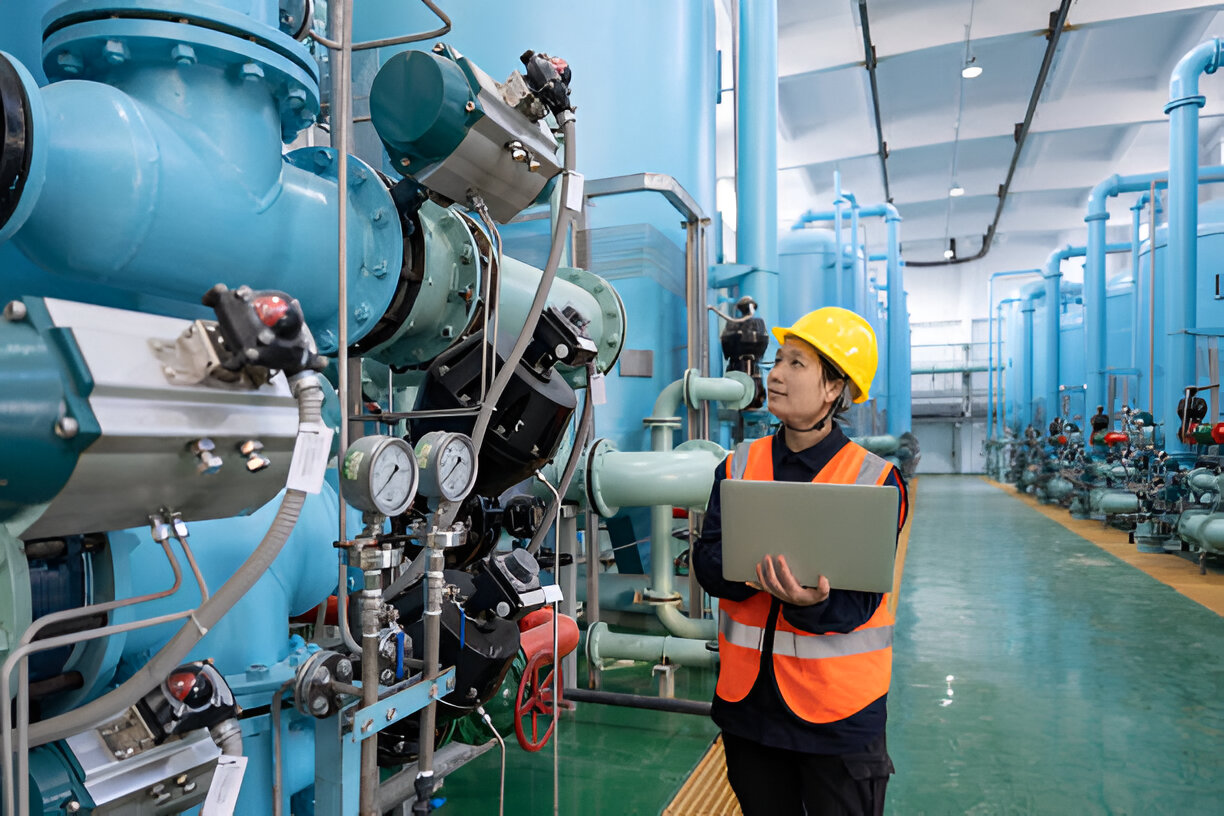Industrial equipment encompasses a wide range of machinery and tools essential for the operation, production, and efficiency of various industrial processes. From construction and manufacturing to energy production and logistics, the role of industrial equipment is crucial in driving productivity, enhancing safety, and enabling innovation. This article explores the types of industrial equipment, their applications, and their importance across different industries.
What Is Industrial Equipment?
Industrial equipment refers to heavy-duty machines and tools used in sectors such as manufacturing, construction, transportation, and power generation. This equipment is designed to perform tasks that would be difficult, if not impossible, for human labor alone, and it is built to withstand tough working conditions and continuous operation.
Key Types of Industrial Equipment
- Heavy Machinery: This category includes excavators, bulldozers, cranes, and loaders, which are vital for construction, mining, and earth-moving projects. These machines are engineered to move large quantities of material, demolish structures, and prepare building sites efficiently.
- Manufacturing Equipment: Includes assembly lines, conveyor belts, milling machines, and CNC (Computer Numerical Control) machines. These types of equipment automate the manufacturing process, enhancing speed and consistency while reducing labor costs.
- Material Handling Equipment: Forklifts, pallet jacks, and automated guided vehicles (AGVs) fall under this type. They play a critical role in warehouses, distribution centers, and factories by ensuring the safe and efficient movement and storage of goods.
- Power Generation Equipment: Turbines, generators, and transformers are examples of equipment used in power plants and renewable energy sectors to produce and distribute electricity.
- Safety Equipment: Industrial operations require equipment like fire suppression systems, ventilation systems, and personal protective equipment (PPE) to safeguard workers from potential hazards and ensure compliance with safety regulations.
Applications of Industrial Equipment
- Construction Industry: In construction, heavy machinery like excavators, cranes, and concrete mixers are indispensable for projects ranging from road construction to skyscraper building. This equipment helps workers complete tasks faster and more safely while maintaining high precision.
- Manufacturing Sector: Factories utilize an array of equipment for producing everything from consumer electronics to automotive parts. CNC machines and robotics help streamline production by performing tasks such as drilling, cutting, and assembling with remarkable accuracy.
- Mining Industry: Industrial equipment like rock crushers, drilling rigs, and underground loaders are essential for extracting valuable minerals from the earth. This equipment is designed to handle the harsh and demanding conditions of mining operations.
- Logistics and Warehousing: Equipment such as conveyor systems, forklifts, and automated storage and retrieval systems (AS/RS) are used to enhance productivity and reduce labor costs in warehouses. They help manage inventory more efficiently and speed up order fulfillment.
- Energy Sector: Industrial equipment in this sector includes turbines, boilers, and compressors, which are critical for generating and distributing energy. With the growing focus on renewable energy, solar panels, wind turbines, and hydroelectric generators are increasingly used to harness clean power sources.
The Importance of Industrial Equipment
1. Enhanced Productivity: Industrial equipment automates processes that would otherwise require significant manual effort. This leads to increased output, reduced production times, and optimized resource use.
2. Improved Safety: The use of advanced safety equipment and automation technologies helps minimize the risk of accidents and injuries. Safety protocols embedded in equipment design also ensure compliance with industry standards.
3. Cost Efficiency: Although the initial investment in industrial equipment can be significant, the long-term savings from increased efficiency and reduced labor costs make it a worthwhile expenditure. Reliable machinery also minimizes downtime, leading to uninterrupted operations and higher profitability.
4. Precision and Quality: Machines equipped with advanced sensors and control systems ensure consistent production quality. High-precision equipment is especially important in industries like aerospace and medical device manufacturing, where exact specifications are critical.
5. Sustainability: Modern industrial equipment often incorporates eco-friendly technology to reduce energy consumption and emissions. This shift towards sustainable practices not only benefits the environment but also aligns with global regulations aimed at reducing the industrial carbon footprint.
Considerations When Choosing Industrial Equipment
- Durability and Reliability: Equipment should be built to last and withstand the specific conditions of the work environment. This includes being resistant to wear and tear and capable of operating for extended periods.
- Maintenance Requirements: Regular maintenance is essential for keeping industrial equipment in optimal condition. Companies should consider equipment that is easy to service and comes with robust support from the manufacturer.
- Technology Integration: Equipment that can be integrated with IoT (Internet of Things) and automated systems can offer real-time data monitoring and remote operation capabilities. This improves efficiency and allows for proactive maintenance.
- Energy Efficiency: With rising energy costs, choosing energy-efficient equipment can lead to substantial savings over time and contribute to sustainability goals.
Conclusion
Industrial equipment is the backbone of modern industry, enabling complex processes to be completed with speed, precision, and safety. Whether in construction, manufacturing, or energy production, the right equipment can make a significant difference in operational efficiency and overall business success. Investing in high-quality, reliable equipment is crucial for companies aiming to stay competitive in an increasingly automated and eco-conscious world.

